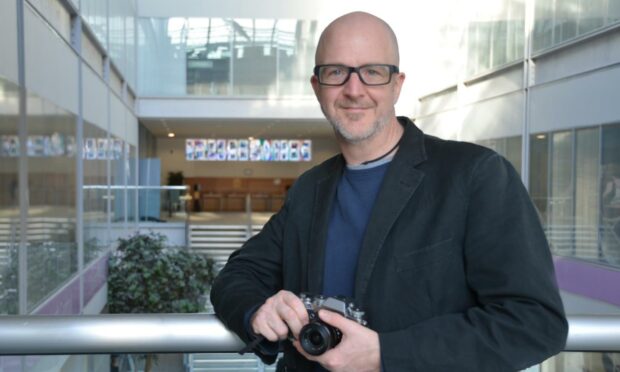An Aberdeen university has launched a “world-first” course using photography to help people deal with loss.
The Robert Gordon University’s new therapeutic photography postgraduate course is the first of its kind, enabling professionals to use photography in their therapeutic practices.
In the course, images are produced to explore perceptions and relationships, as well as the interpretation of life events and societal issues.
The online programme equips those working with people who may be vulnerable or marginalised to improve their wellbeing and empower them.
Neil Gibson, a senior lecturer at RGU’s school of applied social studies, has dedicated years of research – as well as his PhD – to this practice.
In 2015, he launched a therapeutic photography programme to demonstrate to staff in the social work and care sectors how seeing life through a lens can improve their clients’ well-being.
He also worked with mental health organisation, Pillar Kincardine, to establish a therapeutic photography group for adults coping with emotional, social, or mental health challenges.
Mr Gibson travelled to Kenya to research resilience in communities by using photographs to explore issues during periods of political upheaval.
The course leader said: “This is an exciting development in the use of photography as a therapeutic tool and answers a need from professionals in various practices who work with vulnerable people and are looking for new, innovative techniques to engage and empower them.”
Photography helps individuals ‘explore the loss of a loved one to Covid’
Throughout the pandemic, Mr Gibson led a group for bereaved individuals using photography as a healing tool.
He explained: “I’ve even applied this approach with a group for bereaved individuals to help them explore the loss of a loved one to Covid.
“The use of photography in this way helped each person look at the impact loss had on their lives and identity and what they could learn from this.
“Because the group consisted of people from across the globe, they were able to share personal perspectives, but drew strength from one another in acknowledging similarities, challenges, and coping strategies. It was a cathartic experience.”
